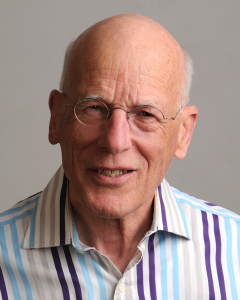Jeremiah Bartram
My version of the #MeToo story began years ago, at a book fair. I’d just published my first novel and I hadn’t yet figured out how bad it was so I was proud and happy. As I wandered around the exhibits I noticed a nearly bare table behind which sat two middle-aged women on temporary chairs, as nondescript as secular nuns. I paused and picked up one of their modest brochures. It was about child sexual abuse, and it claimed that approximately ten percent of the population had been victimized as children and adolescents. It further said that most of the abuse occurred within the family.
“Ten percent,” I said. “That can’t be true. If that’s true, there are victims on my street, in my daughter’s class.”
But they were quietly adamant, those ladies. This was real, they told me.
I replaced the brochure and passed on, but the incident stuck with me. I found myself following sexual abuse stories, of which there were increasing numbers at the time, as scandals about pedophiles in positions of trust became more and more common. I was drawn to such accounts, but they made me angry, because the underlying journalistic assumption was always the same: that the victims—usually adolescent boys—were the prey of a few sick men who used their positions to groom and entrap.
“What about all those other, unrecognized ones—the ten percent?” I thought. They were diddled by a father or elder brother or grandfather or cousin or neighbour. Nobody talked about them.
I wrote an abortive play about a prairie woman who lived with the ghosts of her parents. As I wrote her story, I discovered she’d been sexually abused by her father, with her mother’s knowledge—and her dad was a lot like mine.
◊ ◊ ◊
There’s a huge amount of academic literature on the subject of child sex abuse. One recent meta-study[i], which analyzed the findings of 604 articles, reported that between 6.7 percent and 20 percent of males, and 13.5 percent and 26.5 percent of females in the United States experienced some form of sexual abuse as children or adolescents. (The wide range of findings is partly attributable to different research methods, in particular to the interviewing techniques used.) Other studies propose similar findings. So they were right, those quiet, nameless woman at the book fair.
This is indeed real.
There are three general categories of perpetrator: family members; trusted caregivers (a smaller group); and other (usually older) children or adolescents. The peak age of vulnerability is between seven and thirteen; about 20 percent of cases involve such younger children (the studies take a broad definition of childhood, as younger than eighteen). Perpetrators are overwhelmingly male, and dominance, along with proximity and opportunity, rather than sexual gratification, may be a frequent motivation. That’s why researchers do not identify these perpetrators as pedophiles. Girls are more vulnerable in family situations, with about half the cases occurring in that environment, compared to 20 percent for boys; however, boys are significantly less likely to report abuse. There is an accepted hierarchy of definition as to what constitutes sexual abuse, ranging in seriousness from forms of non-contact (voyeurism, exposure to pornography), to fondling, to oral-genital contact, to penetration. There is considerable variation in the psychological effects of abuse, with some victims developing severe social or psychiatric problems, while others appear to suffer little or no harm. Factors affecting degree of harm include the child’s relationship with the abuser, the age of the victim, and the severity, frequency and duration of the abuse.
All these facts are public. These studies have been around for years. So why the silence? Particularly now, in the #MeToo era, when victims of unwanted sexual advances are heard—and believed?
I think my own case offers a simple answer to that question.
I never dared to ask whether I, too, was a victim—even in the face of that aborted play.
Until Dad died.
◊ ◊ ◊
I have never known how to write–or think–about my father, although I have been continually writing about him, in various disguises, in play after story after essay after play; and when later on I return to those works it’s his phrases, his assumptions and attitudes and prejudices that I hear: Dad’s voice, never my own.
Physically, he was a big man, being 6’4” in a generation when such a height made him special, a giant, like a man of seven feet today. Meeting troop trains, my mother would look for the head above all others and find him. He was impressively good looking as well. Those early pictures of Dad as a teenager, or Dad as a young man in wartime, when he was in his early thirties, are striking–even dazzling. His skin and features coarsened with age, his face turned red, his big bones became more pronounced, he lost his beauty. But he remained imposing until the end.
He was also big in the emotional space that he seized in the house and in company. He was hyperactive, always jittering, gesturing, tapping, poking, and when he was both nervous and excited he would prance, like an over-bred horse. Once, when I was perhaps ten years old, my father grabbed the unpaid bills that lay in a heap on the mantle, and, covering his face with what he always called a “hanky,” he started running on the spot, calling out my mother’s name: “Oh Marjorie, Marjorie, what will I do, what will I do?”
I don’t remember her reply. If she responded at all, she would have expressed impatience–“Oh Wray, you are an idiot!”–something like that. But it’s more likely that she ignored him, from behind the kitchen door.
◊ ◊ ◊
He was always talking. That booming voice, beating reluctant air with onslaught after onslaught, wave after wave of words, a jumble of facts and questions, unceasing as the sea.
“What a curious thing the mind is! Did you know that Rimouski is three hundred and ten kilometers from Quebec City? Ukraine, the breadbasket of Russia, Kiev is the capital, and the Czar had a summer palace near Helsinki, did you know that? And one hundred thousand men died building Saint Petersburg, serfs poor things, although serfs weren’t slaves you know, people don’t understand that. You should go there, Jerry, you should see the imperial city. London. Paris. Phnom Pen. Saigon. You could go to Hobart, capital of Tasmania, check the records, that’s where your grandmother was born. Dear Mother.”
He never listened, but closely observed his interlocutor from his small sharp grey eyes, alert to any sign of inattention. He would pursue me from room to room or, if necessary, outdoors. And like a virtuoso performer, or a master of improv, he could seamlessly enlarge his scope, to include my mother, or anyone who chanced within his range.
“Marjorie dear. Such lovely flowers. Why just yesterday Mrs. Sears was commenting on the roses. My roses. Did you read Balzac, Jerry? Dickens? Now there’s a writer. Your grandfather loved Dickens. Used to read aloud to poor Mother, hour after hour, it was all gibberish of course, after the stroke. Mother was a saint. Now Jerry, what’s on your agenda today? Don’t you think you’ve been in that job too long? A man of your talents! The Globe and Mail. The Toronto Star. The New Yorker! Oh, Jerry, with your gifts, your education, you could do anything. A stockbroker! Why not? Why not? Don’t be like your father, Jerry, don’t be afraid to try!”
◊ ◊ ◊
Dad was cursed by insomnia. Morning after morning he’d appear in the kitchen in his pyjamas, or wander out onto the deck, lamenting the night, and his exhaustion, and his lost youth when all he had to do was lay his head on the pillow and shut his eyes “and next thing I knew, it was morning!”
“How do I look?” he’d ask me, or my mother, and then he’d walk away to check his reflection in the bathroom mirror. “Deadly pale,” he’d call, through the open door. “Black bags under both eyes.” Then he’d return to the kitchen, open and close a couple of cupboard doors. “An awful night, awful,” he’d proclaim, and go into the dining room to read the Globe and Mail and await his breakfast.
“He’s afraid to sleep,” my mother told me, once, when we were alone. “He falls asleep and then he jerks himself awake, and I hear him saying, ‘I wasn’t asleep, I wasn’t asleep!’”
As if sleep, for him, was death.
Sometimes he woke to find himself in the kitchen, in the dark, sleep-walking. Once he was drinking orange juice from the carton. Another time he was gripping a small bottle and his mouth was full of Energine, a spot remover, now banned.
When it came, his death was inevitable. He suffered from advanced Parkinson’s Disease. He had reached the stage at which he could hardly swallow. He lay helpless in an extended care hospital, almost as thin as a concentration camp survivor, delusional, isolated in the prison of his own troubled imagination, but clinging to life. My mother would visit him three times a week by taxi, and feed him ice cream from a thermos, and stroke his nearer leg the way she caressed her ancient long-haired cat, crooning sad words of comfort in a throaty sing-song. He kept up a parallel barrage, talking over her, as if oblivious to her words, although for sure he heard her, speech being his only possible defence, half paralyzed as he was and wholly subject to her power. So he talked, as he had always talked, but now it was wholly fantasy, about the stock market, and his imaginary riches, and his immanent publication in the New Yorker (George Steiner was about to call), or his family.
“Speak up, Jack,” he called out. “Marjorie can’t hear you.”
Uncle Jack had just died.
This was 1992. I lived in Ottawa then, a seven-hour drive. I visited as often as I could—at six or eight-week intervals. Arriving and departing I would kiss his pale high forehead. It was cool, a network of fine blue veins; slightly sticky. I would tell him that I loved him, and he would lie, stone-faced, silent, unresponsive. I would wheel him around the corridors in his complicated, squeaky wheelchair—more like a bed than a chair. I would share information with him about his grandchildren, about my cousins, about politics or his family’s past: anything that might catch his attention. But he was either silent or insistent on urgent fantasies: he had a white Lexus in the parking lot and I must take him right now to the Royal Bank, where he had six million dollars on deposit, and then drive him to Toronto where he had a seat on the Stock Exchange.
The hospital proposed inserting a feeding tube directly into his stomach to extend his life.
My mother was silent—although the decision was hers to make, not mine.
I said, “No.”
Six weeks later, a social worker called me at my office to say that he had died while they were preparing him for his bath.
◊ ◊ ◊
After his death, I found a collapsing photo album with broken soft black pages. There were about twenty pictures, mostly from my parents’ early years, skiing or beach holidays before I was born, or not long after. They looked carefree and, in their different ways, beautiful—he rugged in a white parka and baggy pants, she elfin and quick and wide-smiling. They looked happy. They looked like a couple in love.
There was a picture of him in army fatigues on the tiny balcony of their Huron Street apartment, holding me in his arms. I’m five or six months old, swathed in white blankets. It’s early spring: sunlight, no leaves on the trees. You can almost hear the birds. He holds me away from his body, as if he’s frightened; but he’s looking at me and smiling.
“Wray proudly holding Jerry,” my aunt has written on the back.
There are a couple of maimed snapshots, where my mother has cut herself out of the picture (“I hate having my picture taken!”). There are two photos of me, in short pants, my long skinny legs twisted around each other as I sit close to him on a dock, or astride the top bar of a Dad-made swing. I look like a girl, and he? He looks like a photograph of himself: the long handsome face and roguish smile, the same twinkle, exactly the same, every time: a performance.
And then the pictures stop.
But I had, in addition, three vivid memories that hung, suspended in silence, like the photos on those broken black pages, in the camera of my mind.
In the first, I am hurling a big rock at Dad’s head, and he ducks and runs away. I am nine or ten. I can remember my shame. The rock comes nowhere near his head, and yet he ducks. Am I ashamed for being a sissy who is unable to throw? Or am I ashamed to have a coward for a father? The second mental image: me seizing a garden fork and chasing him in the same front yard—and he runs away. And the third: me in the branches of a maple tree by the roof of our bungalow, while he runs around below, crying, “Jerry, Jerry!” And I’m sobbing.
These three memory fragments were not new to me, but it was only after his death that I realized that they all belonged to the same episode on the same overcast day. First, I hurled a rock at his head and missed; then I seized the garden fork and chased him; and then I hid in the maple tree, sobbing as he circled the house, frantically calling my name.
Why would a grown man run away from an angry little boy? And why would a little boy be so angry that he tried to hurt or—let’s say it—kill his father? And why was there no consequence to this unique act of violence? I had never asked these questions before.
If my nine-year old son tried something like that on me, I wouldn’t run away. I’d confiscate the garden fork and rebuke him. There’d be a family conference, and some kind of remedial action. But in this case, nothing happened. And where was my mother?
I remembered other things, from an earlier period at our previous house: how, as a little boy of six and seven, wearing a shawl and a long dress, I regularly danced for Daddy after dinner, as he sat with my mother in the living room, drinking coffee. He must have encouraged that behaviour. At that same age I used to dress up in my mother’s wedding dress. To his chagrin, I played with girls instead of boys. I was incontinent and afflicted by recurring nightmares, in which a witch was “skinning me alive over an open fire”; I’d wake up screaming for my mother.
And then there were later memories: how, after puberty, alone in the house (I was always alone), I exhibited myself, running naked in front of the living room window, hoping that the mailman would see me. I was a latchkey kid who told himself stories in the branches of trees and took long walks around the neighborhood or hung around the empty house peopling an imaginary world.
I was also a little gay boy who wanted a man—and was that man my Dad?
◊ ◊ ◊
All this circumstantial evidence points in only one direction: to a pre-pubescent incident, or series of incidents, that were sexual in nature and involved my father. I spent a couple of years with a psychiatrist, sessions that confirmed this analysis. Also, there were dreams that seemed to evoke buried incidents and feelings. They hinted at events, or fragments of events. But, frustratingly, there was nothing concrete, no sudden flash of memory with Dad exposing himself, or offering me his cock to play with. I don’t choose those two examples at random. They emerged as scenes in yet another abortive novel during that period, in which my small hero chose the family dinner table to announce his troubling secret: “Daddy shows me Mr. Cock.”
But what really happened? I suggested hypnotism, but my therapist rejected the notion as both unreliable and unethical. So little by little, I learned to live in ambiguity, with the results of abuse and no clear evidence. I suspect that’s typical of victims like me. I’ll never know for sure, and in a way the uncertainty is the most difficult thing of all. I doubt myself, always, and not just in this: I’m still dancing for Daddy, in everything that I do and think and say and try to write.
Only silence is safe.
During those years of reflection, I read a newspaper account of the trial of a guy in this thirties, who lived with his dad in a trailer in some western town. He gave him blow jobs every night, until one day his dad said, “You’ll have to stop doing this. People will think you’re queer.”
That’s when he killed him.
Was that what I was trying to do, as a child of nine, that gloomy day in the front yard with the rock and the garden fork—and the tears in the branches of the maple tree?
And maybe that’s what I did, at the very end, when my mother fell silent and stared down at her own huge gnarled white hands, waiting for me to cut off his life.
◊ ◊ ◊
At the funeral home, they warned me that he was not made up; they had not closed his eyes or his mouth. Also, because of the heat (it was July), he had begun to smell. The plain grey-painted box that I had ordered lay at the end of a basement room, beneath a bare cross, on a stand. The figure inside was wrapped in a white shroud. I saw his knees first, because his legs were bent: the box was only six feet long. He was enclosed in clear plastic as well as the shroud. His eyes were wide open. His mouth gaped toothlessly like a baby robin’s, as if he’d died looking up, like the dead emerging from their tombs on Judgment Day in some old painting. His nose seemed sharper and more hooked than in life, and his cheeks were sucked in. I could not see his tongue. He had a startled look, like an awestruck child, as if he suddenly saw something entirely new, and somehow his expression reminded me of something I’d forgotten: his crafty small teasing smile. He appeared less frail than the last time I saw him alive in the hospital garden, half-dozing in the sun in that complicated invalid chair, so pale, the bluish veins in his forehead so pronounced. No veins were visible now: just yellowish pallor, and calm.
I asked to be alone with him. I knelt and prayed the ancient words: Eternal rest grant unto him O Lord and let perpetual light shine upon him. There were other less articulate prayers. I kissed my hand and touched his two cheeks. His skin was cool and moist—perhaps from some chemical. I patted his knee through the shroud, the way I always did when I said goodbye to him at the hospital. And then I left. I shed some tears in the car.
[i] Andrews, Gavin, Justine Corry, Tim Slade, Cathy Issakidis, and Heather Swanston. “Child sexual abuse.” Comparative quantification of health risks: global and regional burden of disease attributable to selected major risk factors 2 (2004): 1851-940. This is just one of many authoritative studies. In add findings from several others in this account.
Jeremiah Bartram won a Jessie Richardson Award for his first play, The Wolf Within, about a gay priest coming to terms with his identity. He has been silent for a long time, but recently began writing again, with an MFA from University of King’s College and some work for CNQ. He is writing a book on puppet theatre and lives with his puppets in Ottawa.







